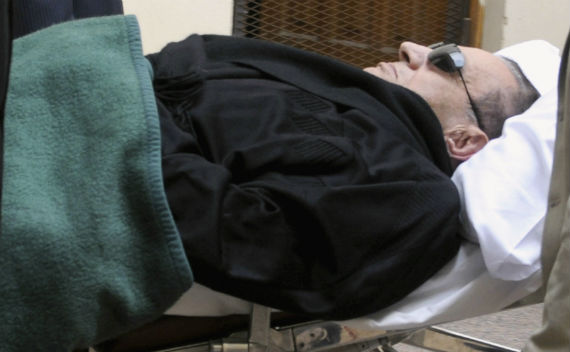Mubarak’s Fate
More on:

Among the many problems Egypt faces today, what to do about former president Hosni Mubarak may not seem high on the list. Writing a new constitution, electing a president, protecting non-Muslim groups like the Copts, and salvaging the economy might seem far more consequential. But I doubt they are.
Prosecutors are demanding the death sentence for Mubarak, Reuters reports:
Egyptian prosecutors have demanded the death sentence for former president Hosni Mubarak and other defendants including his two sons and the former interior minister for their role in the killing of protesters in the uprising that swept him from power.
What is the argument for the death penalty? Reuters continues:
Many Egyptians hope the trial will heal some of the scars of Mubarak’s autocratic rule and help the country find stability after nearly a year of political turmoil under the military generals who replaced him in power.
But executing Mubarak will not heal any scars—still less would executing his family; it will create new ones and leave Egypt farther from stability. It would be an act of vengeance, not of justice, but even if some Egyptians think it just (because there were certainly myriad human rights abuses during Mubarak’s reign of thirty years, including killings) it would leave Egypt far worse off. It would have the “new” Egypt begin its political life with vengeance, with one of the first important official acts of the new regime being executions.
Egyptians used to tell me that Iraq was a barbarous place compared to their land. Look, they would explain, when Iraq overthrew King Faisal in 1958 they killed him and his son (and other family members) in a machine gun fusillade. When we overthrew King Farouk in 1952 he sailed off to Monaco. True enough. It would be a significant event for Egyptian political culture were Egyptians now to supplant past decency by executing their own recent “royal family.” Mubarak is 83 and sick, and he is no threat to the new powers that will be. Nor are his sons. One may argue over whether they should be imprisoned, or for how long, but Egyptians should think twice and then twice more before they commence their new “democracy” in blood.
More on:
 Online Store
Online Store